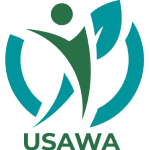At USAWA, we aim to focus on integrated people-centered programs to address health and education inequities for sustainable change in South Africa. We work alongside community leaders, academics, governance officials, and other experts to strengthen systems that enable progress. Our team is largely supported by our alma mater fellowship Tekano, and the Atlantic Institute.
Our launch in 2021 came at a time when the world shifted into unknown territory. The global COVID-19 lockdown left people and communities vulnerable and further unmasked the great inequity between and within communities. Additionally, the political situation in South Africa during July 2021 led to civil unrest that destroyed public and private infrastructure, caused job losses, and disrupted the food supply chain.

How we work
We work with underserved communities across South Africa. Our focus is to assist communities in challenging circumstances, to amplify their voices, to create agency and mobilization, so that every voice is heard, and every story counts.
Narrative justice plays an important role in how we do our work. We believe that lived experiences shape the best advocacy efforts. Our advocacy spans from community initiatives to policy advocacy. Our programs include training, focus group discussions, media statements, measuring for impact, and research publications.
Our commitment
We are committed to building inclusive, equitable, and safe societies for all, especially for marginalized groups.
Our commitment to programs for primary health access, mental health, gender-based violence, and childhood development forms the foundation of all our programs.

